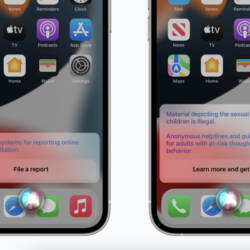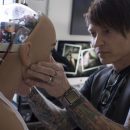Seeing Is Believing: Will AR Plus a Social Credit System Lead to a Sexual Utopia?
Knowledge is power. But it’s also a vital key to understanding ourselves and the world around us.
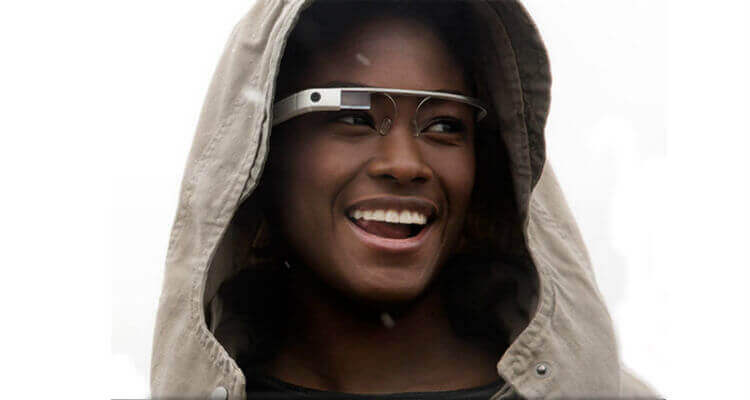
The street bustled, churned with pedestrians. Faces came; faces went, and with each, the ache got worse and worse. It had a voice, an inescapable repetition of you are alone … you are alone.
Then, superimposed over their eyesight, icons swirled and hovered: iGlasses having found among all those strangers a kindred spirit.
Smiles were exchanged and in that busy crowd of people, two people found each other.
#
Before getting into our little thought experiment I want to say that even though it was inspired by The Chinese Social Credit System. The purpose behind it and the methods the Chinese government plan on using to implement it are violations of basic human rights.
If you don’t know about it, in brief the idea is that, though mass surveillance and facial recognition technology, plus monitoring of Internet use—especially social media—the government would then “score” its citizens based on their personal and professional behavior.
The system will also be set up to punish as well as reward people as the state deems necessary: for good little citizens this means better schools, a faster Internet connection, and other perks.
For those the state labels “bad” this will mean fewer opportunities, financial penalties, and even public shaming.
Meanwhile, those with lower scores may even find themselves unable to find a sexual or romantic partner: potentials being unwilling to associate with anyone “below” them.
But there might be something in the idea of this system that could, with caution, intelligence, and especially respect for human rights, become a good thing: a way to bring people together.
And, yes, I’m talking about sex.
A question of choice

Obviously the biggest problem with the Chinese system is that it’s a tool for governmental control instead of a way for their citizens to lead happier lives.
So let’s start from scratch with our own version.
First, it has to be consensual: meaning that you have to willingly opt into it. This also means that there should not be any kind of punishment, even socially, for not doing so.
Second, the goal should be connectivity and not control. Safety should be in there as well but never to the extent where it supersedes privacy or basic human rights.
Thirdly, our new system should be totally secure—and I’m looking at you, blockchain—as well as being in no way connected to either the government or a large corporation. Instead think something that’s a mix of crowdsourcing, open-source, and totally decentralized.
What about the hardware?
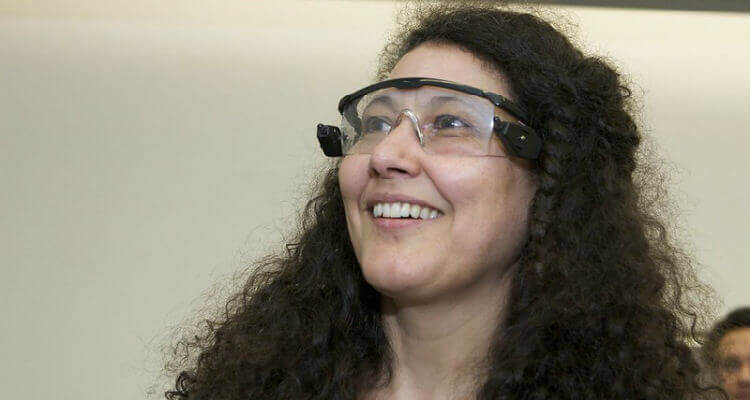
We could stop here and put our new system into something akin to what the Chinese are planning but there’s an even better option: augmented reality.
AR is something we’ve written about quite a bit here at Future of Sex, including how it might affect intimacy, the future of dating, and other scintillating explorations of its erotic potential.
The idea behind augmented reality is quite simple. Begin with a pair of glasses, or even contact lenses, and equip them with a means to project images directly into the eye.
This means that wearing AR gear would give you the ability to access information about what you are seeing in real time. Want to know how old a building is as well as its history? Wear your AR glasses and just look at it.
And, getting back to our new system, the same could be true with people.
Seeing would be believing

Software? Check. Hardware? Check. Alright, already, I hear you say: what about the sex?
Putting all our pieces together let’s do some speculating. There you are, for example, at a party—or simply out and about on your daily errands. Through the lenses of your AR glasses, you can get all kinds of information about the world around you.
If you’re thinking the next line would be something like “including who wants to have sex” let’s rethink that. First of all, what you see through your glasses are what people want you to see—and no one is just going to broadcast “me horny.”
Here’s where things get fun. Instead, let’s imagine that you’re looking for a partner. So what you do is sign up for a service akin to Tinder or Grindr, but with a difference: your interest is only displayed to those who meet your criteria. No match? Then you, and your potential person, don’t see anything.
The same could be done for all kinds of things: sexual orientation, personal gender pronouns, political affiliations, hobbies, marital status, and more. Others see what you want them to see—or if you have something in common.
Think of this as a better version of Facebook: but in real time and right in front of your eyes.
The erotic possibilities are amazing but even more importantly it could mean connections for people who feel they are lost and alone. With a glance they could see a world of people just like them, and who are happy and willing to help.
The social credit system side
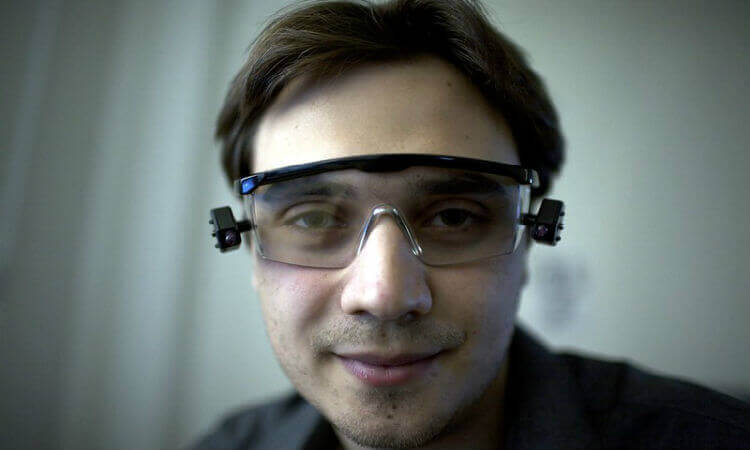
Here’s where things get interesting. Keeping in mind, yet again, the purpose of our system is to be a positive thing and not an element of totalitarian control. So how do we make social credit a part of it?
The obvious answer is that it could be used to warn others of inappropriate sexual behavior, as well as give an opportunity to give a hearty bravo to those that do a good job.
This is a big question and I’d be lying if I say I have it all figured out. Pessimistically, this could lead to digital scarlet letters: where people are branded without trial or possibility of appeal.
Optimistically, though, a self-governing system, with well-thought-out checks and balances, could help curb sexual assaults—especially as AR glasses could provide comprehensive evidence of what happened.
Part of those checks and balances, too, could be a rating system for the rating system: give too many bad reviews, make false accusations, etc., and you might find your social credibility in question.
Think of this like a better version of Yelp: but in real time and—you guessed it—right in front of your eyes.
Again, remember that our system only displays what the user wants to display or where it is pertinent: this means people wouldn’t be walking around with those scarlet A’s hovering over their heads. Unless things might be heading towards the bedroom and a warning is justified.
Looking to the future

Let’s say, that though the aforementioned caution, intelligence, and respect for human rights, and a lot of hard work, we get the bugs worked out. So what might the world look like?
By seeing and, best of all, understanding the world around you it could become a more accepting place. You’ll know, better than ever, the people around you: what they like or dislike, and especially what you have in common.
This also means it would be so much easier to connect with people sexually as what you like and what they like would be—if you match up—right there in front of your eyes: becoming an opportunity for lots of erotic playtimes.
Knowing, too, what good behavior looks like—as well as knowing that being bad will always catch up with you—could lead to a more empathetic, and sexually safe, culture: no one would be a stranger, and no one could get away with hurting anyone.
This is all speculation but we can still hope that someday we might be able to learn from our mistakes, and even tools of oppression, and work to create a society that is self-governing, responsible, compassionate, and connected—in all kinds of beautiful ways.
I would rather walk with a friend in the dark, than alone in the light.
Helen Keller
Image sources: Bill Grado, Francisco Huguenin Uhlfelder, City University Interaction Lab, TORLEY, City University Interaction Lab, JOHNNY LAI
Leave a reply
You must be logged in to post a comment.













